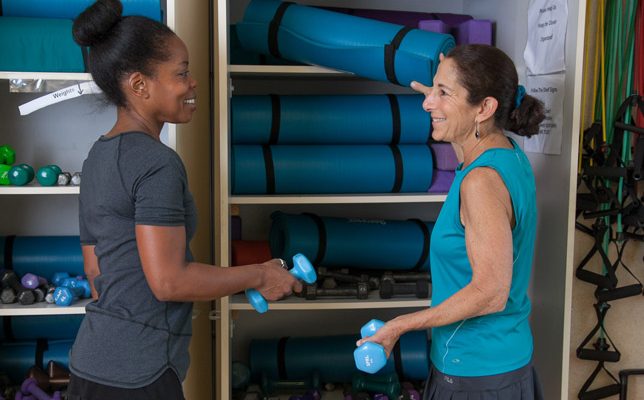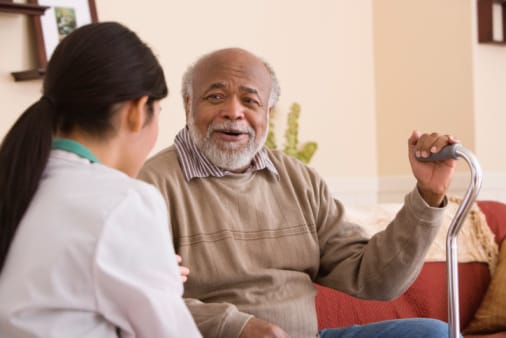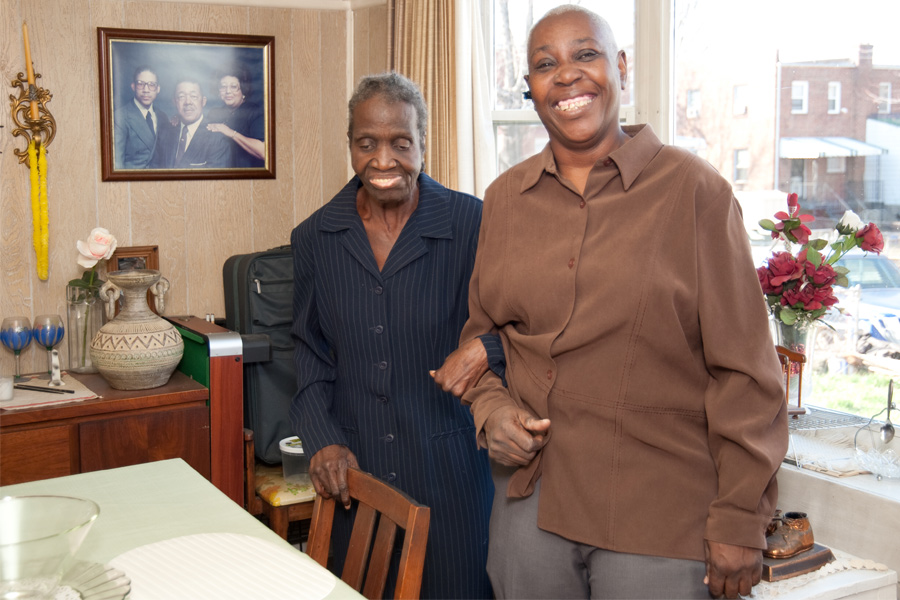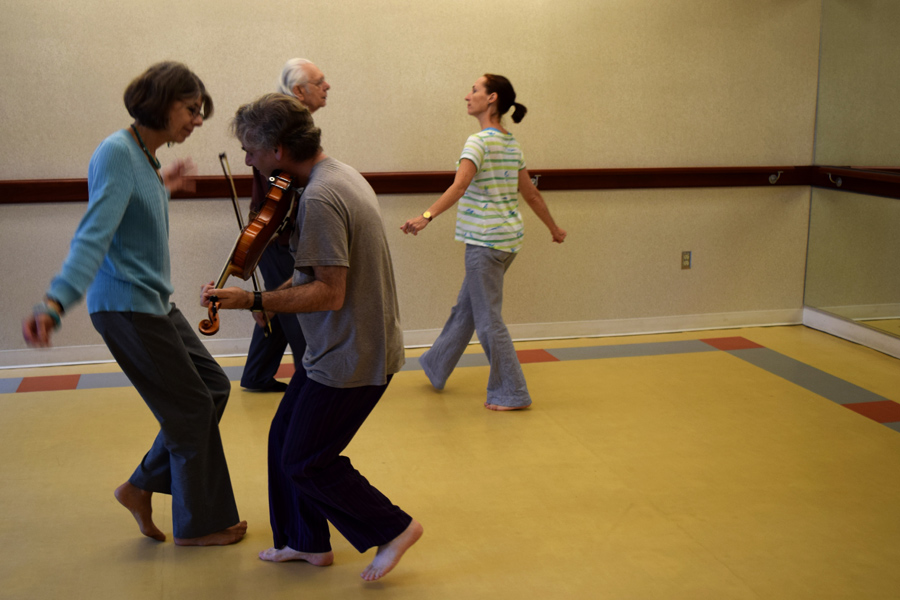Five Steps to Healthy Aging: A Toolkit


How do you see yourself as you age? Do you see yourself as active, robust, healthy? Or do you see yourself as some millennials do in this AARP video? Since our youth, many of us have been bombarded with negative images portraying older adults as frail, sick, or confused. Yet research suggests each of us can take steps now to preserve or improve our health as we age. At Iona, your health and wellbeing are very important to us. That’s why we created this toolkit to guide you towards healthy aging.
We hope these five steps (and accompanying tools) will help you age well and live well.
1. See Your Doctor
Seeing your doctor may be one of the most important things you can do to stay healthy or get healthy. Did you know many qualities often mistakenly associated with normal aging are in fact due to treatable medical conditions? These include frailty, fatigue, confusion, and incontinence. Your doctor can help you develop a therapy plan. Your doctor also can help you avoid future disease. One of the simplest ways to protect yourself from disease is to get a vaccination. A flu vaccination, for example, can reduce your risk of developing bronchitis or pneumonia. The National Institutes of Health (NIH) recommend older adults receive annual flu vaccinations, as well as routine vaccinations for tetanus, shingles, TDAP, and pneumococcal. NIH also recommends women age 50+ receive health screenings for certain diseases such as breast cancer, cervical cancer, osteoporosis, and diabetes. For men age 50+, NIH recommends health screenings for high blood pressure, colon cancer, and diabetes among others.
If you don’t already have a physician, consider seeing a geriatrician (a medical doctor with specialized training in the needs of older adults). To find a geriatrician, use Medicare’s physician finder tool. For tips on selecting a doctor, see advice from the National Institute on Aging (NIA), or from Consumer Reports. To get the most from your doctor’s visit, bring a list of questions. See other tips for making the most of your appointment from NIA’s free publication, Talking with Your Doctor: A Guide for Older People.
2. Exercise
You probably know that regular exercise can reduce your risk for disease, but did you also know it can improve your everyday quality of life? According to the National Institute on Aging (NIA), regular exercise may “make it easier to…carry groceries in from the car…stand on tip toe to reach something on a top shelf [and]…keep up with your grandchildren….” Finding opportunities to exercise in DC is as easy as visiting Iona, which offers a variety of fitness classes. If you live beyond the DC area, you can search for an elder-friendly fitness program via AARP and the International Council on Active Aging. Your Medicare Advantage or Medigap policy may cover fitness classes via Silver Sneakers. If you prefer to exercise at home, consider these easy, in-home, and equipment-free exercises promoted by NIA. Consult with your physician before starting any fitness program, and read NIA’s exercise safety tips.
3. Eat Well
Like exercise, eating well may reduce your risk for disease. Along with exercise, good eating also can increase your energy levels, improve your memory, and lift your mood. Reducing excess weight, a problem for many older adults, additionally may improve sleep, reduce symptoms of anxiety and depression, and prevent certain types of pain. For tips on improving your diet, see free literature from the National Institute on Aging, and the US Department of Agriculture. To customize your healthy eating plans, consider consulting with a dietician. Find a Registered Dietician via the Academy of Nutrition and Dietetics. If you live locally, you may contact Iona to learn about our nutrition services. Always consult with your physician before starting a new diet regimen.
4. Reduce Fall Risks
A bad fall can quickly cut your options for aging well on your terms. Falls, according to the Centers for Disease Control (CDC), are a leading cause of long-term disability and death among older adults. In fact, the CDC notes 1/3 of older adults (age 65+) experience a fall each year, 20% of those falls result in significant injuries, and “every 29 minutes an older adult dies from a fall.” Numerous factors may increase your risk, including safety hazards at home, ice and snow in the winter, heat in the summer, health symptoms, and medication side-effects. To reduce your risk of falls, consider consulting with your physician about health problems and medications which may increase your risk; modifying your home to improve safety, exercising, or working with a physical therapist to improve balance, managing pets and pet equipment, and paying attention to fall hazards outside of the home.
5. Play
Playing isn’t just for children. Research suggests engagement in pleasurable activities may lengthen your life, improve your memory, and protect you from depression. The type of activity you do does not matter as much as how much you enjoy it, and how much of a sense of purpose you derive from it. Senior recreation today bears little resemblance to the bingo and shuffleboard games of previous generations. Today, senior centers and other organizations offer elder-friendly opportunities for fitness, travel, music, academic learning, volunteering, and creative aging to name a few. Here at Iona, we offer personal growth education, arts, exercise, and volunteering. If you live locally, you can find other recreation listings in our free Resource Guide, which also describes other elder services throughout the DC metro area. If you live outside of DC, consider clicking on the activity-specific links above, or contact the Eldercare Locator to learn more about elder services in your area.
Growing older doesn’t have to be about growing “old.” At Iona, we want to support you towards aging well on your terms. We can help you make a plan, get fit, learn to eat healthy , play, or connect to other services. We hope this toolkit inspires you to make your own plan to age well and live well.
By Leland Kiang, LICSW
Leland Kiang, LICSW is manager of Iona’s Information & Referral Help Line, whose staff answers questions about senior services throughout the DC metro area. Leland also has written articles for BIFOCAL, Unite Virginia, and the National Resource Center on LGBT Aging.
Related Articles

The Stories of Dementia in the District

A Couple’s Vows Create Opportunities to Age Well

Can You Imagine Taking Three Buses to Get to Iona?

